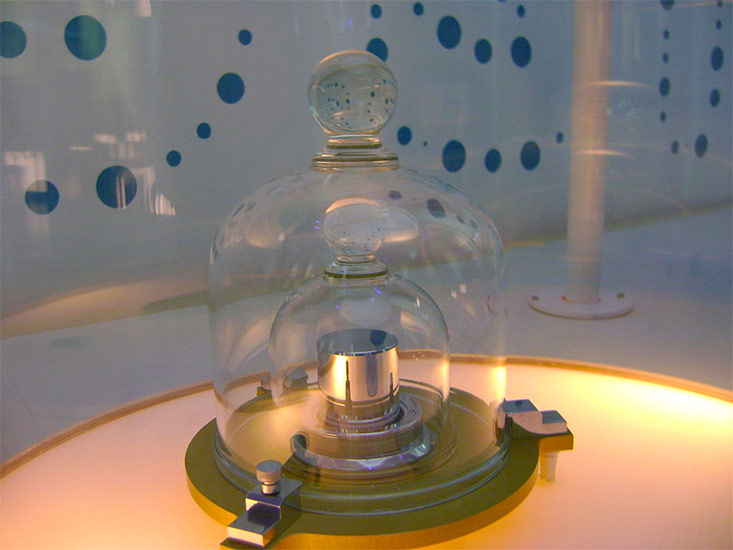Science
Related: About this forumYour Weight Is About to Be Redefined
A physicist at the National Institute of Standards and Technology once said, “If somebody sneezed on [the] kilogram standard, all the weights in the world would be instantly wrong.”
He was referring to a cylinder, sometimes called Le Gran K, which is housed in a vault in Paris and handled like a priceless gem. The mass of anything measured in the world—you, your groceries, exoplanets, galaxies—traces to the mass of this 126-year-old platinum-iridium cylinder,* the so-called international prototype. Researchers in every field of science and engineering need to trust that they’re using the same reference point as every other scientist and engineer. No cylinder, no reference.

Le Gran K is the kilogram against which all kilograms are measured, and scientists do anything to avoid exposing it to dirty hands and dirty air—and especially to sneezes.
Every few decades, since the prototype’s been around, scientists have removed the cylinder, cleaned it with a solvent, washed it with steam, and scrutinized its mass. They verify that its six official copies, housed in the same vault, still match up exactly.
Three verifications, roughly 40 years apart, have occurred since 1889. In 1992, disaster struck: A comparison of the second and third measurements suggested either that the original had lost about 50 micrograms—around the mass of a grain of sand—or that the copies had gained that amount. Though miniscule, those measurements showed that “the kilogram is not stable,” says Peter Mohr, a physicist involved in an effort to redefine the basic units of measurement.
This is why many scientists decry the primacy of the cylinder as an outright embarrassment with the potential to wreak havoc on the practice of science. As the 2014 Norwegian film 1001 grams put it, “Man determines the definition of weight, but it’s equally important to understand what the definition of weight does to man.”
Fortunately, all this is about to change.
more
http://nautil.us/blog/your-weight-is-about-to-be-redefined
DetlefK
(16,423 posts)I wish the article would have gone into more details, e.g. how they want to replace the cylinder with a super-pure sphere of a defined number of silicon14-atoms.
Travis_0004
(5,417 posts)I know a few years ago somebody was trying to make a perfect sphere out of silicon, since silicon is very stable. If they could do that, they can calculate how many atoms there are, and possibly set the standard as being x atoms of silicon.
Binkie The Clown
(7,911 posts)I keep it in a box under my work bench, but if they need a new standard, I'd be happy to donate it.
![]()
MisterP
(23,730 posts)gregcrawford
(2,382 posts)muriel_volestrangler
(101,361 posts)roomtomove
(217 posts)....so I adjust my scale to the weight I want to be....hence no exercise or diets needed.........![]()
airplaneman
(1,240 posts)unlike mass which can not be created or destroyed.
My body weight can only be created and never destroyed.
Its a bummer I know.
-Airplane
pansypoo53219
(20,996 posts)muriel_volestrangler
(101,361 posts)1 yard= 0.914 4 meter
1 pound (avoirdupois)= 0.453 592 37 kilogram
http://www.ngs.noaa.gov/PUBS_LIB/FedRegister/FRdoc59-5442.pdf
and if you read further, you find the American pound and yard definitions have been based on the kilogram and meter since the 1890s. So every time the meter has been more precisely defined, the definition of the foot has changed with it.
Demeter
(85,373 posts)Physicists, chemists, engineers....sometimes it matters.
The rest of us can live with imprecision. "Close enough for government work" is a very healthy attitude.
SeattleVet
(5,479 posts)I always understood that this was where you measure it with a micrometer, mark it with a piece of chalk, and cut it with an axe.